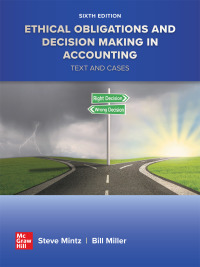You just became the new external auditor of a large public company that carries freight throughout the
Question:
You just became the new external auditor of a large public company that carries freight throughout the world. You just began to audit the 2021 financial statements and have come across a transaction that occurred in 2020 that would materially change the reported results for calendar years 2020 and 2021. The transaction in question is the reporting of the cost of a new, expensive truck as an expense for the year rather than as a capitalized asset to be depreciated over the useful life of the truck. It seems the company had a high earnings level in 2020 and thought that year could better absorb the full cost of the new truck as an expense rather than a capitalized amount with future depreciation charges that would affect 10 years of earnings. There was no question that the treatment caused the 2020 and 2021 financial statements to be materially misstated.
Upon further examination, you notice that the company had not revised or restated the financial statements for 2020, and its financial statements for 2021 continue to show the effects of the error. You are trying to determine whether the financial statements for 2020 previously issued should be restated or reissued in advance of a meeting with the company’s chief financial officer and what the effects might be on the 2021 statements.
Questions
1. Describe the circumstances under which financial statements should be revised and reissued as opposed to restated. What would be the consequences of such restatements? Which treatment would you recommend to the CFO given that the misstated amount is material and why?
2. What are some of the possible consequences for the company of the error and resulting material misstatements of the financial statements?
3. Under what circumstances might the SEC seek to clawback executive compensation?
Step by Step Answer:

Ethical Obligations And Decision Making In Accounting Text And Cases
ISBN: 9781264135943
6th Edition
Authors: Steven Mintz





